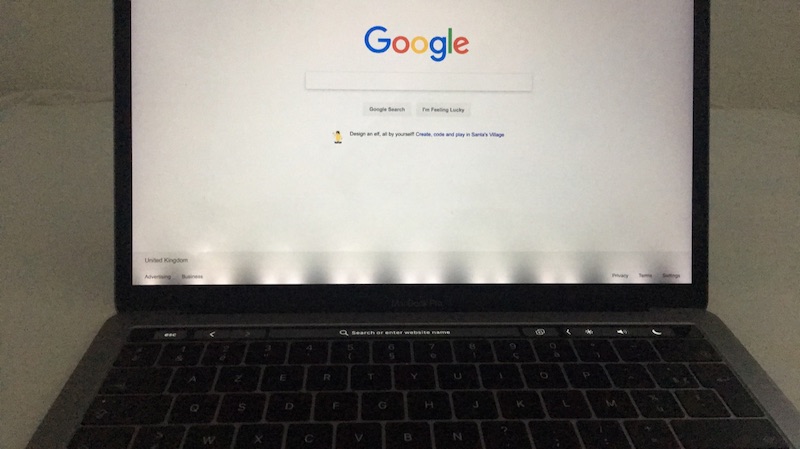![]()
In 2019, some customers of 2016 and 2017 MacBook Pro models
began to notice an odd "stage lighting" effect that would impact their screen, potentially causing the laptop to be unusable. The odd occurrence resulted from a weak and fragile flex cable that can experience wear and tear with repeated opening and closing of the computer.
Image via MacRumors reader SourceSunToM
Now, two years later, a judge who's presiding over a case from a group of consumers accusing Apple of knowingly selling the laptops, despite the defect, says that Apple would have been alerted to the issue thanks to pre-release testing.
As reported in a paywalled report from
Law360, Judge Edward Davila sided with the plaintiffs by agreeing that testing the laptops before their release would have informed Apple engineers of the issue. Hence, the company knowingly sold the laptops with the defect.
The plaintiff, Mahan Taleshpour, representing a larger group of consumers, says that Apple "continues to deny there was ever a defect in its display cables," and goes further to say that Apple attempted to cover any evidence of "Flexgate."
According to Talehspour, Apple deliberately deleted comments and threads from its Apple Support Community Forum, which often serves as a go-to place for crowdsourcing information on potential issues with Apple devices. Talehspour accues Apple of deleting comments that outlined "Flexgate" and the issues around the display. The judge says that if the accusation is true, it will act as further proof that Apple was aware of the issue.
Apple is pushing back, saying that Talehspour bought his MacBook Pro in 2017, and used it without any issues for more than three years until the case was filed. Apple also says that the allegation is based on false assumptions,not hard-ironed facts.
Specifically, Apple says that the idea that pre-release testing of the device would have alerted it to the issue is not accurate. Alexander Wheeler, an attorney for the case, says that the plaintiffs are "naturally pleased" with the judge's current stance on the issue and their decision to allow the case to move forward. Wheeler goes on to state the specifics of "Flexgate."
With the release of the MacBook Pro in 2018, Apple
addressed the issue by adding a longer and seemingly stronger flex cable to the display, reducing the likelihood of wear and tear.
Article Link:
Apple Knowingly Sold 2016-17 MacBook Pro Models With 'Flexgate' Display Defect, Judge Says



